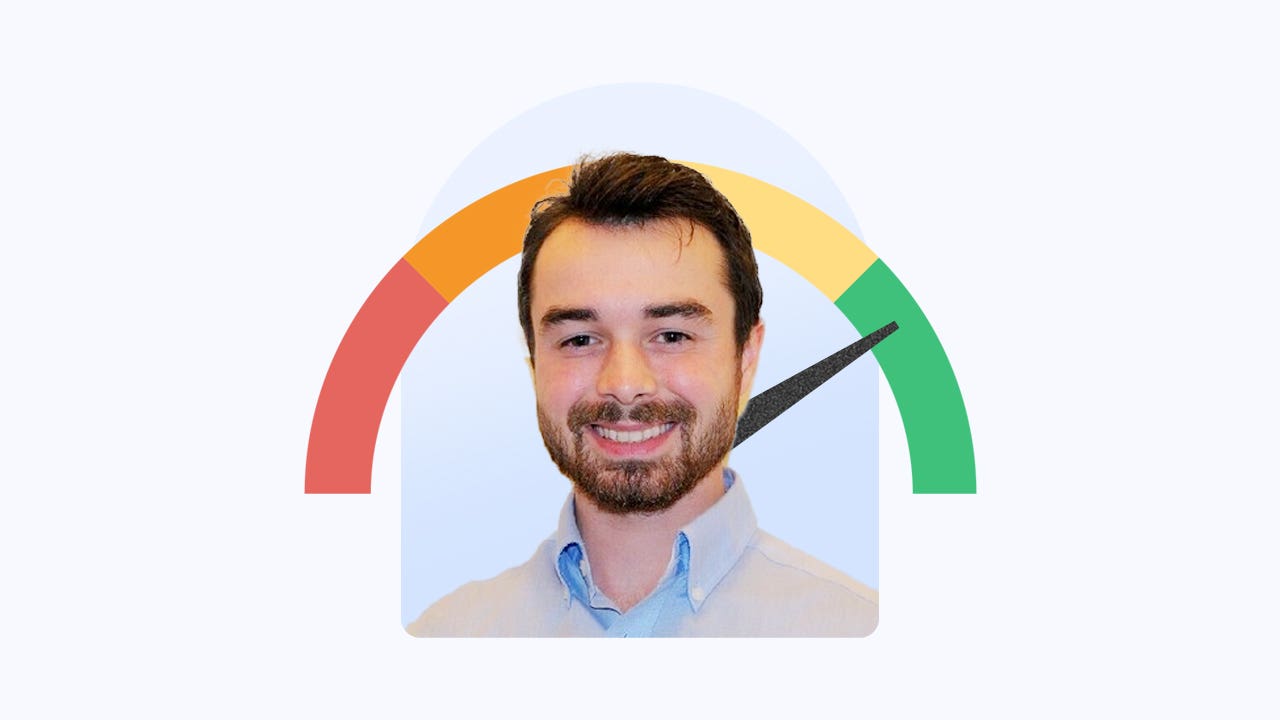It took me five years to achieve excellent credit. Now what?

Credit building can be a long process with several ups and downs, and everyone seems to have a different experience with it. It might take some cardholders a decade or more to climb to the highest credit ranks, while others can achieve the same feat in a matter of months. It all really depends on where you start, the amount of money you have to spend and how much debt you’re comfortable balancing.
My experience with credit-building was pretty straightforward. I started with no credit history in early 2019, and by early 2024 my credit score was over 800. And now that I have excellent credit, I can take advantage of it with better loans and better rewards cards. Discover the benefits of excellent credit and what you can do once you achieve that hard-earned perfect score.
Benefits of excellent credit
I knew it was good to have excellent credit, but no one ever sat me down and told me exactly why, so I asked a credit expert from one of the three credit bureaus. Rod Griffin, Senior Director of Consumer Education and Advocacy at Experian, claims that people with “excellent credit scores can potentially qualify for better terms, lower interest rates, access to better credit card rewards and even insurance discounts or savings in other areas like security deposits on utilities.”
In other words, excellent credit’s greatest benefit is access to the tools and terms that help you stay on top of the things that could hurt your credit, like debt, high-interest loans or unfavorable credit card terms. Ironically, the benefits that make excellent credit worth striving for are exactly what people with less-than-perfect credit could really depend on for managing debt, building credit or saving for retirement.
What to do with a perfect credit score
One of the first things you should do with a perfect credit score is keep it. An excellent credit score means a higher ceiling on your available credit, but it also means a deeper well for debt to accumulate. Although a high credit limit and more credit options can provide more financial flexibility, you still need to keep your focus on minimizing debt and paying balances in full.
Griffin claims that when “you’ve reached the lender’s score threshold for its best rates, additional points possibly don’t matter.” This means even if your credit score is around 750 you might qualify for the same rates and products as someone with an 800 credit score. This doesn’t mean you should stop using credit responsibly once you hit 750; you should maintain positive credit habits no matter what. But when you reach this threshold, you can start taking steps to improve your amount of available credit and reduce your interest rates.
Staying on top of your credit card debt can be much easier when you use your nearly perfect credit to your advantage. Your available options will depend on your issuer or lender, but here are some changes worth considering once you’ve reached excellent credit or are close to it.
Refinance high-interest loans
If you have a loan you took out when you had a credit score in the good or lower range, you might consider refinancing this loan. When a lender evaluates your eligibility for refinancing, they’ll see your new credit score and may provide you with an interest rate lower than what you currently pay. Your credit score alone won’t determine the rate you receive, but it never hurts to explore your options — especially when you have perfect credit.
From my personal experience, refinancing my car loan was one of the best decisions I made.
I bought my car when I had no credit history, so my interest rate was much higher than I was hoping for. But I opened a new credit card around the same time I took that loan and practiced responsible credit habits, like paying my loan and card on time and in full and never putting more onto my card than I could pay right away. Because I had a healthy credit mix and good credit habits, my score went up relatively quickly.
After about seven months, I had reached excellent credit and was able to refinance my high-interest car loan with a new lender that gave me an interest rate that was a fraction of my previous rate.
Open better credit cards
When you reach excellent credit, you have several new card options you may have previously been ineligible for. Some of the best rewards cards require excellent credit, so you should evaluate your current card strategy, look for gaps in your rewards categories and consider your overall available credit to determine which cards are a good fit for you.
You shouldn’t open and close credit card accounts frequently just to take advantage of incentives, however. Doing this may end up limiting your options once issuers catch on. For instance, the Chase 5/24 rule is specifically designed to limit this kind of activity. But Griffin claims this practice has actually become quite common, claiming that:
The practice of ‘card surfing’ — closing accounts and opening new ones — to find the best rates and incentives has become common. As a result, the frequency with which a person opens and closes accounts isn’t as great a sign of risk.— Rod Griffin, Senior Director of Consumer Education and Advocacy at Experian
As long as you’re doing it responsibly, opening a new credit card can expand your available credit, giving you more breathing room to utilize a lower percentage of your overall limit without having to reduce your expenses. This can make it easier to keep your score where you want it.
Not only will you be eligible for cards with higher credit limits, but you’ll also have a chance to open cards with the highest rewards rates, the most valuable perks and nuanced benefits. It can be exciting to explore these new options, but don’t open multiple cards at once. Griffin advises you to wait at least three months between card applications and to avoid closing old accounts at the same time you open new ones.
“If you close accounts at the same time you apply, you will lose the credit limits on the cards you close,” says Griffin. You want to keep your available credit as high as possible to give you more room to spend money on the things you need. Griffin cautions that an increase in credit utilization could result in a decreased score for two or three billing cycles.
You should request a credit limit increase whenever possible, but achieving excellent credit is an especially good time to do so. It’s a great milestone that can remind your issuer that you’re a responsible borrower.
As long as you don’t make big lifestyle changes that could increase your spending beyond an acceptable credit utilization ratio, you should be in good shape even if you don’t increase your credit limit. But asking for credit limit increases is a practice you should get into the habit of doing whenever the opportunity arises. The more frequently you request a credit limit increase and receive one, the faster your overall limit will grow.
Most experts recommend keeping your credit utilization ratio, or the amount of credit you’re using compared to your overall credit amount, under 30 percent to avoid hurting your credit score over time. However, those with excellent credit typically have a credit utilization ratio of less than 10 percent, so it’s best to keep this number as low as possible in the long run.
How long it takes to get an 800 credit score
Everyone will have a different experience getting excellent credit, but the habits you maintain to get there will always be the same.
People with excellent credit tend to have many years of positive credit history, so achieving an excellent credit score is more of a marathon than a sprint.— Rod Griffin, Senior Director of Consumer Education and Advocacy at Experian
Whether you have no credit, good credit or bad credit, you should always pay on time, never carry a balance (if you can help it) and keep your credit utilization as low as possible. Although your score will grow quickly at the start of your credit journey, Griffin claims, “it is more difficult to improve your score the higher it gets. The reason is simple. The closer you are to perfection, the harder it is to get better.”
It took me five years to go from no credit to a credit score of over 800. I have never missed a payment, paid late or owed more than 10 percent of my overall credit limit, so the climb was consistent for me. But even with excellent credit, I find myself focused on the credit-building habits that got me here because they’re the same habits that will keep me here.
How I’ve maintained my excellent credit score
It’s important that the same habits you used to build your credit are the habits you use to keep your perfect score. When I reached an 800 credit score, it felt like the work was done and I could relax my strict payments and card use, but I haven’t let my guard down.
Credit issuers will continue to report your activity to the credit bureaus. If your goal was excellent credit, try not to see it as a finish line. Credit scores are continually in flux, and you can easily drop down to good credit if you miss a payment, pay late or extend your credit utilization too far. Consider these tips to maintain your excellent credit:
- Set up automatic payments on your credit card and bills to pay your balance on time
- Always pay your balance in full
- Keep a long credit history
- Monitor your credit report
- Keep your credit utilization low
According to Griffin, “people with the highest credit scores have utilization rates of less than 10 percent and most often pay their credit card balances in full.”
The road to excellent credit is paved with the habits you built along the way, which should have helped establish a routine that will keep your credit healthy. If nothing else, working toward excellent credit is a crash course that teaches you financially responsible behaviors.
The bottom line
Griffin cautions to “strive for progress, not perfection” when working toward an excellent credit score, which is sensible, safe advice to follow. The habits that lead to high credit scores won’t be as accessible or easily learned for everyone — and they’re even more difficult to work into a routine. However, you should maintain the habits that got you there in the first place, and it’s a good reason to explore options that can help you maintain excellent credit — like refinancing a loan or opening a new credit card. And once you’ve achieved excellent credit, keeping your credit-building mindset and discipline is important if you want to maintain the perfect credit score you worked hard to earn.
Why we ask for feedback Your feedback helps us improve our content and services. It takes less than a minute to complete.
Your responses are anonymous and will only be used for improving our website.






